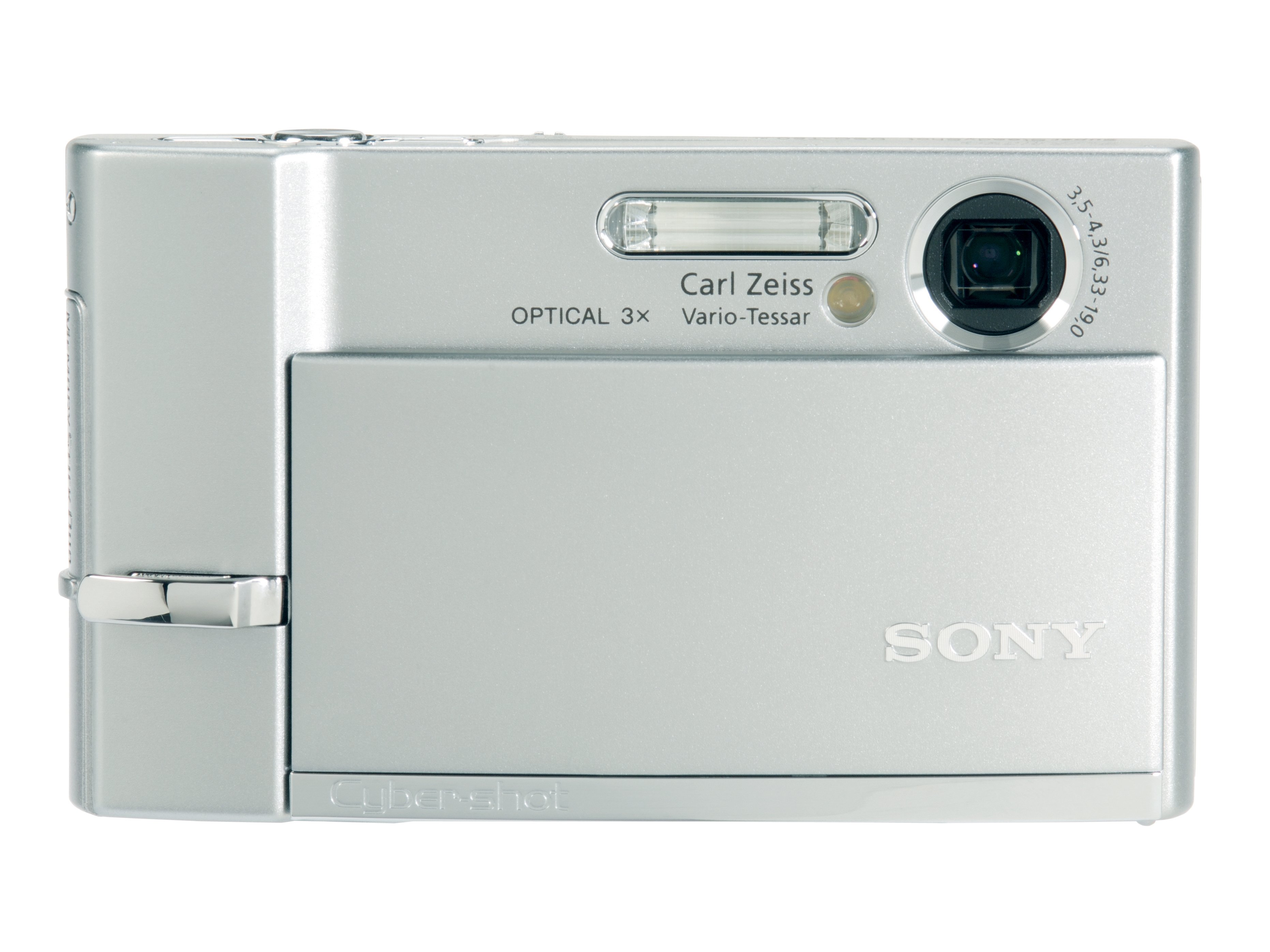TechRadar Verdict
This is a camera for your mum. It's a point-and-shoot job so don't go looking for any manual modes or any clever stuff
Pros
- +
Sharp, colourful and well-exposed images
Excellent metal body and a good quality of manufacture
Good value
Cons
- -
No optical viewfinder
Why you can trust TechRadar
There was a time when James Bond could whip out a gadget and the world would gasp in awe. These days it takes more to impress... a lot more.
Perhaps that's why this stylish compact from Sony fails to get the juices flowing despite being impossibly slim, having a fancy touch screen and a battery with more energy than a hyperactive toddler.
But a dozen other cameras out there on the market do too - and without the Sony price tag. Let's be fair, this isn't a bad camera. A year ago it would have been a stunning piece of kit, but twelve months on and the market's caught up, so the DSC-T50 had better serve up some impressive images if it's going to cut any ice.
Of course, the foundation of high image quality revolves around a good sensor and a decent lens. Sony takes no chances with the glassware and has shoehorned in a Carl Zeiss Vario-Tessar with a 3x optical zoom that offers a fairly pedestrian 38-110mm range.
Despite being minuscule, the lens is well up to the usual high-standard Zeiss, delivering sharp images with minimal distortion and excellent sharpness from edge to edge. However, you do end up pining for a wider angle and a touch more from the telephoto lens.
Super HAD
As far as the sensor goes, the DSC-T50 has been fitted with a 1/2.5-inch Super HAD CCD chip that has an effective resolution of 7.1 megapixels.
HAD stands for Hole Accumulation Diode, and it's a special chip construction that specifically reduces digital noise - which is an important factor when using very small imaging chips that have a high megapixel count. The HAD works. This little wonder keeps noise under relative control, even at ISO 800.
Sign up for breaking news, reviews, opinion, top tech deals, and more.
Perhaps the main draw of the DSC-T50 is its large 3-inch Touchpanel Hybrid TFT screen with an impressive 230,000 pixels. Instead of pressing buttons and selecting menus, you simply point and press the Touchpanel screen and let your finger take charge. In theory it sounds fun but in practice it can be a pain in the fingertip and not the joyride you might imagine.
There's a calibration routine, which makes the whole process more accurate but you still find yourself stabbing dementedly at the screen, trying to get it to bend to your will. On the plus side, the lack of buttons does keep the size down and means the back of the camera is virtually all screen.
A sliding lens cover stirs the DSC-T50 into life, but it does take a good second and a half to wake from its slumber. It's on the slow side, but the solid build quality and excellent finish of the body soon win you over. The tough, brushed metal exterior and scratch- resistant screen makes it fairly resilient to everyday use, but it's advisable to buy a good case in order to ward off scuffs or dents.
Although the DSC-T50 has a slot for Memory Stick Duo cards, images can also be stored on an internal 56MB of memory. That's enough for around six shots at maximum resolution, so unless you already own some, you'll need to factor in a 1GB Memory Stick Duo into the price.
Oh... and if you already own some full-size Sony Memory Sticks and you're thinking of using them in your DSC-T50, then don't. Old Memory Sticks will only fit into the DSC-T50's card slots with the aid of a mallet. When will Sony wean itself off proprietary standards?
In the main, the DSC-T50's images are superbly bright and punchy. For a compact snapper with a smallish lens and sensor, it turns out pleasing pictures.
That small porthole end works extremely well and the Super SteadyShot anti-blur mechanism, coupled with ISO 1000 sensitivity, certainly helps to keep things sharp at slow shutter speeds and in low-light situations.
Via PhotoRadar
Tech.co.uk was the former name of TechRadar.com. Its staff were at the forefront of the digital publishing revolution, and spearheaded the move to bring consumer technology journalism to its natural home – online. Many of the current TechRadar staff started life a Tech.co.uk staff writer, covering everything from the emerging smartphone market to the evolving market of personal computers. Think of it as the building blocks of the TechRadar you love today.
